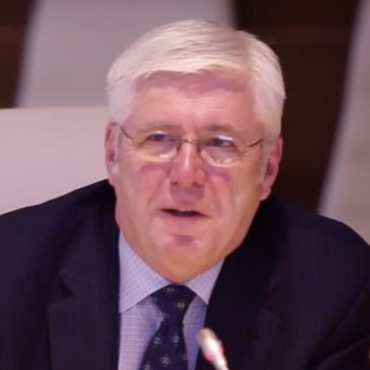A new lawsuit could erase the red line between politics and charity
If successful, the suit would further politicize the charitable world, to its great detriment.

The Giving Review senior fellow Craig Kennedy is a former president of both The Joyce Foundation and the German Marshall Fund.
If successful, the suit would further politicize the charitable world, to its great detriment.
Without checks and balances, scrutinizing and challenging foundation leaders’ million-dollar paychecks is nearly impossible.
This year’s election demands greater scrutiny of nonprofits involved in political activities.
Anonymous donations to controversial anti-Israel groups shine a spotlight on the urgent need for donor-advised fund reform. Will this finally motivate Congress to pass much-needed legislation?
Leading nonprofit associations have rejected efforts to expand the rules governing donor privacy. Their concern is misplaced, and the field’s legitimacy is at stake.
Wealthy nonprofits, especially universities, increasingly demonstrate the same behaviors that led Congress to regulate foundations more than 50 years ago. The law should be updated to include these organizations.
The association executive talks to Craig Kennedy and Michael E. Hartmann about donor-advised funds, charity and politics, and the attention-getting op-ed in support of civility and pluralism in the sector that she signed with five others.
The association executive talks to Craig Kennedy and Michael E. Hartmann about populism and polarization, the minimum-distribution requirement for private foundations, and foundations’ uses of donor-advised funds.
Carefully crafted, profoundly misguided.
Recognizing a tenuous credibility, and reviving a true charity.
This article, republished with permission, originally appeared in The Chronicle of Philanthropy on December 13, 2022. With Democratic Senator Rafael Warnock’s victory last week, another contentious Georgia Senate race is over, and with it, the attention focused on nonprofits for their role in registering, educating, and mobilizing voters and monitoring the fairness of the electoral process.… Continue reading Georgia Senate race shows why the fraying line between charity and politics must be repaired
In southwest Florida after Hurricane Ian, thousands of people are pitching in to help their next-door neighbor and also the unknown victim of a flat tire in the middle of a busy road.
Using one guiding principle, here are two proposed reforms to improve the permissions, restrictions, and tax advantages around 501(c)4s.
Here are four serious proposals to separate “charitable” and “political” giving.
Apparently, the value of philanthropy is determined by the worldview of the gift-giver.
Criticisms of Barre Seid’s historic $1.6 billion to the Marble Freedom Trust are ignorant of both details and context.
The heir, author, and researcher talks to Craig Kennedy and Michael E. Hartmann about philanthropy in America, including its “top-heaviness,” what could perhaps be done about it, and whether any charitable reform might be able to attract cross-ideological support.
The heir, author, and researcher talks to Craig Kennedy and Michael E. Hartmann about the “Wealth Defense Industry,” the degree to which philanthropy is used and charity is abused by the wealthy, and what could perhaps be done about it.
Ivy League degree, military service, tough Midwesterner who could throw a punch when necessary.
Including about the charitable and the political.
A letter to the editor of The Chronicle of Philanthropy.
Conservatives would be wise to push for a bolder plan that addresses the conflation of political and charitable causes—and clearly defines what constitutes legitimate charitable goals. That’s the only way to ensure philanthropy doesn’t lose all credibility and become completely politicized. Let’s focus on what really matters.
From Charles Koch and Robert L. Woodson, Sr., decades’ worth of accumulated wisdom, but differing perspectives.
The think tank’s director of domestic-policy studies talks to Craig Kennedy about the changing nature of philanthropy, different ways of thinking about grantmaking to better society, and think tanks.
The think tank’s director of domestic-policy studies talks to Craig Kennedy about state and local government, “compassionate conservatism,” and what philanthropy can do to replace stagnation with dynamism in our society.